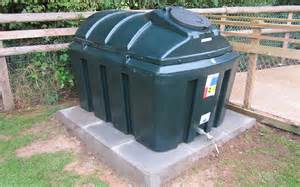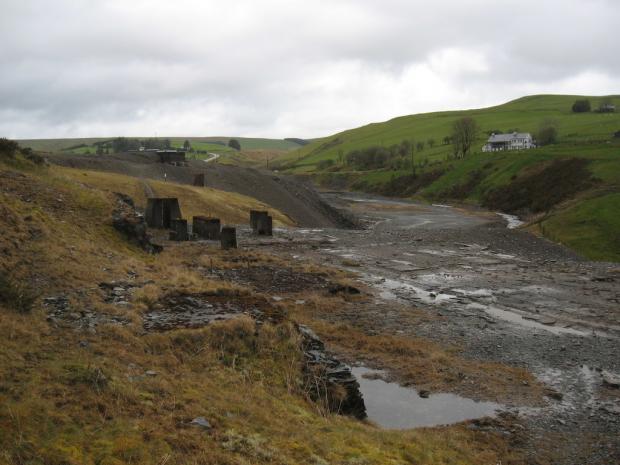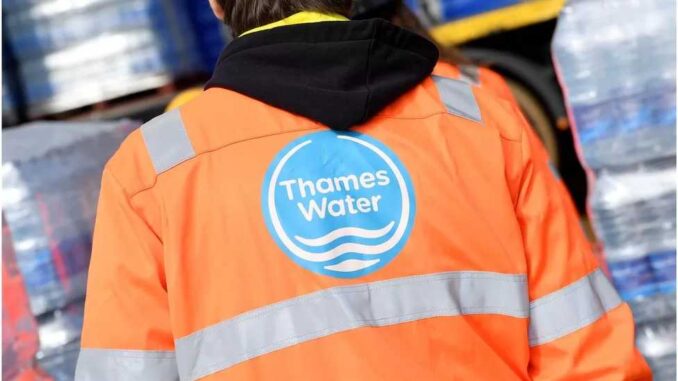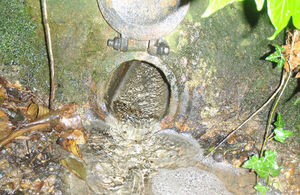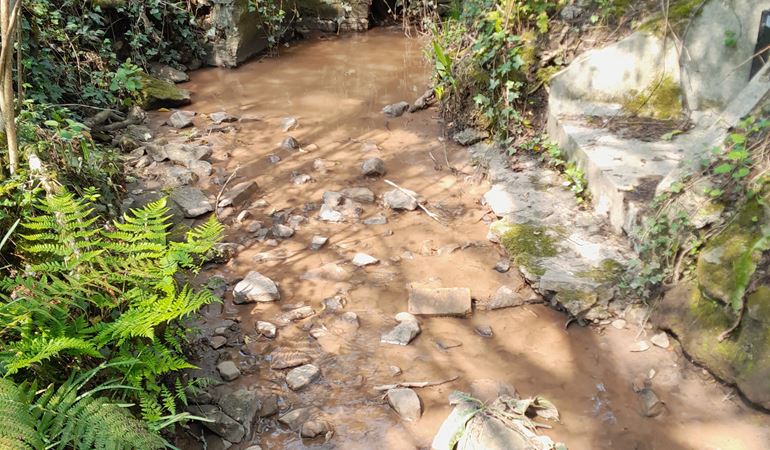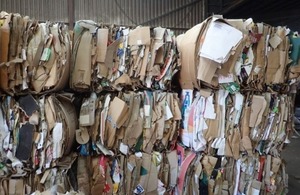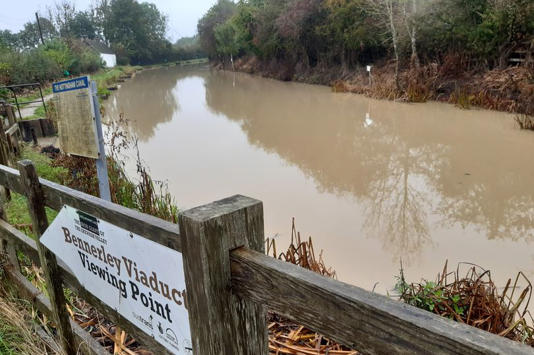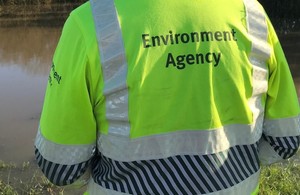Background
If you have an oil storage container at your home, business or farm it is requirement that you comply with the applicable regulations. Failure to comply may cause a pollution event that contaminates either groundwater, surface water or soil. The migration of oil below a building or close to a building may affect the air quality within the building making it unsafe to occupy.
The person responsible for the property or premises is usually legally responsible for the oil storage container (tank, drum, bulk containers (IBC) and/or bowsers (mobile container), for example the homeowner, business owner or site manager.

Where the responsible person can be shown to have failed in his responsibility to ensure that the oil is stored correctly, in a secure location, and that the oil storage container has not been maintained for regularly inspected any insurance policy may be invalidated and the responsible person become liable for the clean-up costs.
Applicable Regulations
Depending on where you store oil differing regulations apply.
Storage at your home
You normally have to follow Building Regulations if you have an oil storage container installed at your home.
If your storage container can hold more than 3,501 litres, you must follow the regulations for businesses.
Note: Building Regulations in Wales, England, Scotland and Northern Ireland are different in each region. Check that your compliance by reference to the Building Regulations that apply in your area.
Storage at your business
You have to follow oil storage regulations if the container at your business can hold 201 litres or more of certain types of:
- petrol
- diesel
- biofuels
- kerosene
- vegetable oil and plant-based oils, for example sunflower oil or aromatherapy oil – including waste cooking oil
- synthetic oils, for example motor oil – including waste oil
- oils used as solvents
- biodegradable oils, for example lubricating or hydraulic oils
- liquid bitumen-based products, for example waterproofing or damp proofing products, or coatings for a road surface
The regulations for businesses also apply to public sector buildings like schools, hospitals, churches and residential care homes.
Storage on a farm
You have to follow different regulations depending on whether you’re storing oil:
- for heat and power for agriculture, for example to fuel your tractor or run a grain dryer
- to heat your farmhouse
- for a separate part of your business, for example to fuel vehicles you hire out
Exemptions
The oil storage regulations do not apply to:
- liquid petroleum gas (LPG)
- hydrocarbon products that are solid when unheated, like bitumen
- solvents that are not oil based, for example trichloroethylene
- aromatic hydrocarbons like benzene and toluene
- waste mineral oils drained from vehicles, and mixtures of diesel and petrol that cannot be used as vehicle fuel
The regulations also do not apply if your storage containers are:
- underground
- in a building that would capture leaking oil -contact your local council to find out if you have to meet any extra fire safety regulations
- at a refinery
- at a premises for onward distribution of oil – but not a premises which sells oil directly to end users or a premises that uses oil
Inspections
Annual inspections of the storage tank should be undertaken by professional. As part of these inspections the condition of the tank and associated equipment, bund, pipework should be recorded along with any actions (repairs etc) that may be needed to ensure the integrity of the storage system.
Following a spill or leakage both the environmental regulator and the insurance company may request access to the annual inspection reports as means of assessing whether the responsible person has maintained the storage system and acted in a responsible manner.
In addition to the annual inspections, it is good practice for monthly inspections of the storage system be undertaken by the responsible person. A simple checklist can be used to record the conduction and finding of the monthly inspections. Further details on the scope of monthly inspections is given by oil care (Click Here).
Labelling your Tank
Your oil storage container must have a sticker in a prominent position that tells you how to look after your oil and what to do if you have a spill. The person installing your new tank will put this on – but you can find out how to order a new sticker.
Installing an Oil Storage Tank
You should choose someone who’s registered with a ‘Competent Person’ scheme.
You’re responsible for any pollution caused by problems with your oil storage container. You need to know the regulations about oil storage containers, including where it’s located and how it’s protected.
Catching Spills and Leaks
The person installing your tank will do a risk assessment, and they’ll let you know if your tank has to have secondary containment (a ‘bund’). The bund must:
- hold 110% of the tank’s capacity
- be impermeable to oil and water
You’ll need a bund if your tank’s in any of the following places:
- where oil spills could run into an open drain or a loose manhole cover
- where the tank vent pipes cannot be seen when the tank’s being filled, for example because the delivery tanker is parked too far away
- within 10 metres of coastal waters or inland fresh waters like lakes or streams
- within 50 metres of a drinking water source, for example wells, boreholes or springs
- where oil spills could run over hard ground and reach coastal waters, inland fresh waters or a drinking water source
- in the inner zone of groundwater source protection zone 1
You’ll also need a bund if your tank can hold more than 2,500 litres of oil.
It is good practice for each storage system to have access to a suitably sized spill kit that can be used to contain the leakage preventing its spread. Personal should be made aware of the location of the spill kit and be trained in its use.

Prepare to deal with an oil spill
If you are responsible for any oil storage you should be prepared for an accident, oil leak or spill. You need to know what to do.
Being prepared will reduce the chances of you having an incident that could cause pollution and damage your property. Keep an oil spill kit with sorbent materials (products that will soak up oil but not water) and leak sealing putty near your oil store so you can get to it quickly if you need it. Commercial and industrial spill kits may contain additional items, for example drain blockers, and large amounts of sorbents.
Discovering a spill
If you discover an oil leak, or have a spill, you need to deal with it immediately. If you don’t you could cause a serious pollution incident and may have enforcement action taken against you.
Take action
If you can safely stop the flow of oil do. If there’s room, and you won’t get oil on your skin, put a bucket under the leak and close valves or taps.
Use the contents of your spill kit, sandbags or earth to soak up the oil if it’s on a hard surface and stop it entering a river, stream, watercourse, and drains or soaking into the ground.
Never wash any spilt oil away into drains, a gully or into the ground. Most drains connect to the nearest watercourse and oil can cause serious pollution of rivers, streams and groundwater.
Never use detergents to clean up spilt oil; you could cause a worse pollution incident. The detergent itself is a pollutant and mixes oil into the water.
Getting Help
Don’t put yourself at risk to clean-up an oil spill. If you can’t clean-up the spill yourself or want some advice about a spill call the national incident/pollution hotline 0800 80 70 60, the line is open 24 hours, calls are free from land lines but there may be a change if you’re using a mobile.
You may be in an environmentally sensitive location which needs a very quick response to prevent serious pollution of the local environment and nearby groundwater drinking water supplies.
Contact your fuel supplier for advice (they may offer a clean-up service or be able to recommend a course of action).
Contact your insurance company and tell them that there’s been a leak or spill from your tank or pipework, that a clean up operation using a professional company may be needed and to claim the cost of your lost oil.
Protect yourself and your property
If spilt oil has spread into a river, stream or drains or you don’t know where it’s gone you’re likely to need help to clean up the spill.
If the oil has soaked into the soil/ground, you’ll need to take action quickly to prevent it soaking further into the ground and reaching building foundations or groundwater supplies. You’ll need a professional company with training and accreditation to clean up oil that’s soaked into the ground. Removal and disposal of soil contaminated with oil can be very expensive; we recommend you contact your insurance company as soon as possible.
Don’t risk leaving an oil spill; it can damage the foundations of a building and kill plants and wildlife.
Leaking tanks
If you find a leak from your tank try to put a container under the leak to stop more oil spreading. Use leak sealing putty from your spill kit to cover the leaking area, wear rubber or vinyl gloves to protect your skin.
For plastic tanks you may be able to temporarily stop the leak by rubbing a bar of soft soap across the leak – make sure you protect yourself by wearing rubber or vinyl gloves.
Phone for help; putty or soap are only short term answers to a leak. Your tank may need to be emptied to stop your oil causing pollution. Your fuel supply company or insurance provider may be able to help.
Report an oil spill
In England, Northern Ireland and Scotland call the incident hotline telephone 0800 80 70 60 (24-hour service), free from land lines there may be a fee from mobile numbers.
You can use this number to report an oil spill, or other environmental incident, across the United Kingdom.
Penalties
Failure to store oil in a correct, safe and secure manner may result in fines.
In the event of a spillage occurring that causes pollution of surface water or groundwater the Environment Agency may take legal action resulting in the payment of substantial fines.
In the event that the insurance company will not pay for any clean up costs the owner of the tank may become liable for clean up and claims from third parties eg neighbours.

